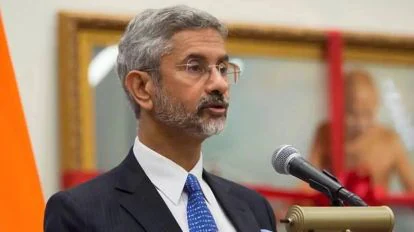New Delhi, India — India’s External Affairs Minister, S. Jaishankar, recently delivered a firm message highlighting the country’s ongoing concerns regarding terrorism originating from across its borders. He accused Pakistan of providing refuge to terrorist organizations within its major urban centers, reinforcing India’s diplomatic assertions about Islamabad’s perceived failure to act against such groups.
Addressing an international audience, Jaishankar discussed the shifting global perspective on regional security, drawing attention to the difficulties India continues to face due to terrorist activities allegedly supported by Pakistan. He stated, “These terrorist groups are not hidden away in isolated areas; they operate openly in large cities, are identifiable, and continue their activities without fear of consequences.”
Growing Global Recognition
Jaishankar noted that the international community has become increasingly aware of Pakistan’s suspected involvement in nurturing terrorism, a realization bolstered by India’s persistent diplomatic efforts. “The era of denial and evasiveness is coming to an end,” he asserted, urging the world to apply pressure on nations that harbor terrorist entities.
India has consistently maintained that organizations such as Lashkar-e-Taiba (LeT) and Jaish-e-Mohammed (JeM) enjoy support within Pakistan. These groups have been implicated in several major attacks on Indian soil, including the 2008 Mumbai attacks and the 2019 Pulwama incident. Despite sanctions and global condemnations, India contends these groups remain active and influential.
Terrorism’s Urban Network
The Minister also highlighted the intricate networks that sustain terrorism, going beyond armed militants in remote locations. “We are dealing with organized networks embedded within urban settings — encompassing financial channels, communication systems, and local facilitators,” Jaishankar explained.
These comments come amid heightened tensions between India and Pakistan, particularly in relation to security challenges in Jammu and Kashmir. Recent surges in terror-related activities along the Line of Control and within the Kashmir Valley have reinforced India’s determination to keep Pakistan’s role in terrorism central to international dialogues.
Diplomatic and Strategic Context
Jaishankar’s remarks are anticipated to resonate with India’s international partners, including the United States and the European Union, both of whom have deepened their counterterrorism cooperation with New Delhi. India is expected to use these alliances to increase diplomatic and economic pressure on Pakistan if it does not take tangible steps to dismantle terror networks.
Experts believe the Minister’s statement may also serve as a precursor to discussions at forthcoming global forums such as the United Nations and the Shanghai Cooperation Organisation, where the issue of terrorism will be a key topic.
Conclusion
S. Jaishankar’s pointed criticism of Pakistan reflects India’s more assertive foreign policy stance under Prime Minister Narendra Modi’s leadership. As terrorism continues to threaten regional peace, India’s insistence on accountability for state-supported terrorist activities is likely to find growing support worldwide. The international community will be watching closely to see if Pakistan responds with meaningful measures.



